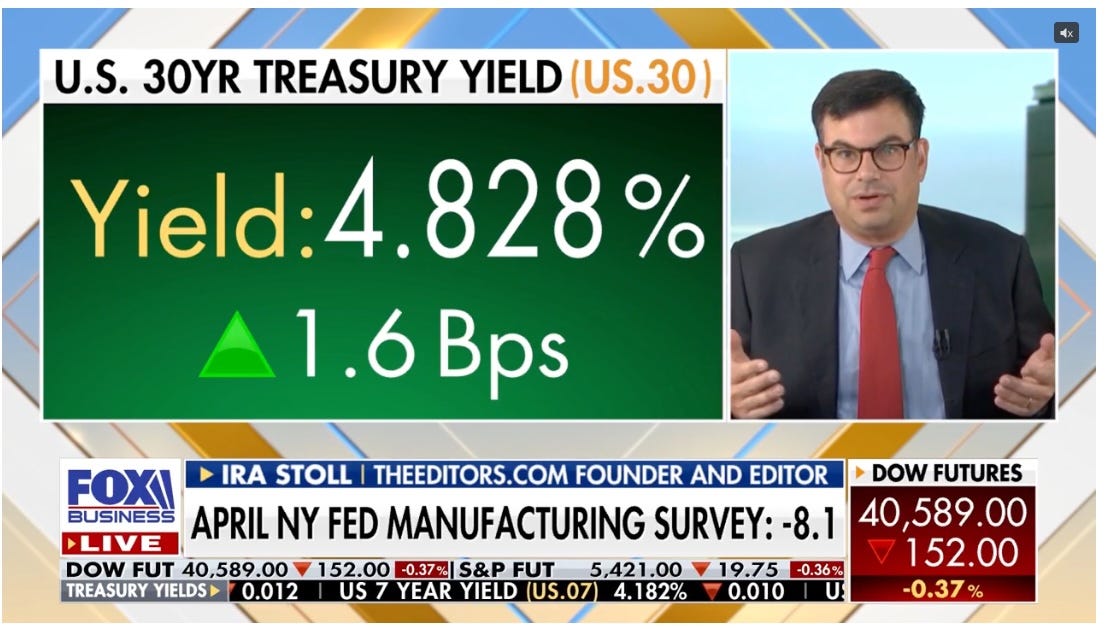Academia Joins the Leave-Us-Alone Coalition
Harvard’s belated, suspiciously convenient, outbreak of libertarianism.
One of Harvard’s most distinguished 20th-century graduates, the president of American for Tax Reform, Grover G. Norquist, wrote a 2008 book titled “Leave Us Alone: Getting the Government's Hands Off Our Money, Our Guns, Our Lives.” It described what Norquist called the “Leave Us Alone Coalition,” at the heart of the center-right. Norquist put universities and their professors, by contrast, in what he called “the takings coalition,” noting “many private colleges receive much of their funding from government grants and student loans,” and thus back tax-and-spend Democrats rather than small government Republicans.
Of all President Trump’s surprising accomplishments—leaving the Vietnamese Communists begging for terms 50 years to the month after the fall of Saigon—the one that has me chuckling today is the emergence of Harvard as the newest member of the “leave us alone coalition.”
It’s slightly comical, because Harvard is an institution that, notable exceptions like Norquist notwithstanding, has mostly cheered on the rise of a bigger and ever-more-intrusive federal government in virtually every other realm.
•Guns. Harvard law professor Laurence Tribe testified before Congress in favor of more federal regulation of guns.
•Payday loans. The Harvard Business Law review online published an article urging the Consumer Financial Protection Bureau to impose stricter regulations to “curb current abuses in payday lending.”
•Food additives: An adjunct professor of nutrition at Harvard T.H. Chan School of Public Health argued for more Washington government control of food ingredients by the Food and Drug Administration: “Allowing companies to make this decision rather than FDA is a problem because companies have a conflict of interest—their focus is making money.”
•Financial regulation: As a Harvard law professor, Elizabeth Warren testified before Congress in favor of the Dodd-Frank legislation regulating banks and and its creation of the Consumer Financial Protection Bureau, which imposed another layer of Washington rules on American businesses.
•Health insurance: Richard Frank, the Margaret T. Morris Professor of Health Care Policy in the Blavatnik Institute at Harvard Medical School, backed the federal government using its spending clout to force states to expand Medicaid coverage and otherwise use federal power to shape health insurance rules nationwide under ObamaCare.
•Tobacco: “Perspectives: Why a national ban on menthol cigarettes is the right choice,” was the headline over an article in which “Three Harvard T.H. Chan School of Public Health experts share their views on the significance of the ban, its potential impact on public health, and why this step is long overdue.” Why “perspectives” is plural is an interesting question, because the Harvard public health crew did not include any perspectives arguing that the federal government should leave the matter to the states, or to the free choice of individuals in the free market.
•K-12 Education: Harvard education policy experts like Thomas Kane have backed national laws requiring state and local schools to test students and report results. “Schools should have to report the test performance of students in each racial and ethnic group,” one Harvard professor wrote in a New York Times opinion piece.
Now all of a sudden that Washington is coming after Harvard itself, rather than the health insurance companies, the tobacco companies, the handgun makers, the banks, the food companies, the payday lenders, or the elementary and high schools—now, lo and behold, Harvard is having a belated, and suspiciously convenient, outbreak of libertarianism.
Harvard President Alan Garber writes against what he calls “direct governmental regulation.” “No government—regardless of which party is in power—should dictate what private universities can teach, whom they can admit and hire, and which areas of study and inquiry they can pursue,” he writes, calling for the “unfettered pursuit of truth.”
“The university will not surrender its independence,” Harvard’s lawyers, William Burck and Robert Hur add. “Neither Harvard nor any other private university can allow itself to be taken over by the federal government.”
It’s amazing how being on the receiving end of a demand letter from heavy-handed Washington bureaucrats can awaken realizations even among hardened left-wing Democrats that maybe centralized, command-and-control rule by faraway federal bureaucrats isn’t so constitutionally grounded or conducive to excellence?
If there’s any hope from the Harvard situation, it’s that Harvard’s newfound appreciation of being “unfettered” by being “taken over by the federal government” might eventually extend to a more-free-market perspective on the non-Harvard parts of the American economy.
Principled small government is one thing. But if the only institution Harvard wants to be “unfettered” by Washington is itself, it starts to look like special-interest pleading. It could be possible that what Harvard really objects to isn’t the interference from Washington, but the substance of the demands, which concern things like “viewpoint diversity in admissions and hiring.” It might be the one kind of diversity Harvard is willing to go to the mats to oppose.
How to distinguish the difference between a principled approach and a merely convenient one? Here’s a test. Norquist—who graduated from the college in 1978 and got an MBA from Harvard Business School in 1981—might be available on a last-minute emergency basis for some Commencement week speaking engagments. That is, if Harvard’s professed commitments to intellectual vitality and free speech extend to learning from someone who is for smaller federal government even in realms that extend beyond the regulation of higher education.
Recent work: The “Mornings With Maria” show on Fox Business this morning had me on to talk about the Fed, the tariffs, and the overall economic outlook. It was a nice, long (8 minutes, 11 seconds) segment, which seems to be available online here.
It got a nice shoutout on social media from Judy Shelton, who was nominated by Trump in his first term to the Fed: “What a great interview @MariaBartiromo and how refreshing to hear the astute views expressed by @IraStoll concerning the partisan leanings of officials at our nation’s central bank.”
More recent work: “How Harvard’s President Spoiled Passover,” is the headline over my latest New York Sun column: “Waiting until sundown — or even until the morning of April 15 — to issue the same message would have gone a long way toward reassuring the Jewish community at Harvard and elsewhere that its legitimate concerns about discrimination, violence, and harassment are being taken seriously. Instead President Garber managed to respond to a federal antisemitism inquiry by violating his own antisemitism task force’s recommendations, overtly signaling his callous disregard for the Jewish holiday and for the students, administrators, and faculty who observe it.”





"Financial regulation: As a Harvard law professor, Elizabeth Warren testified before Congress in favor of the Dodd-Frank legislation regulating banks and its creation of the Consumer Financial Protection Bureau, which imposed another layer of Washington rules on American businesses."
If Congress thought the existing State and Federal bank regulators were not doing their jobs, why didn't it eliminate the federal ones, push out the State ones, and replace them with the CFPB?
Why bear the weight of both?
The 3 April letter from the Trump administration to Harvard was very reasonable:
https://s3.documentcloud.org/documents/25879226/april-3-harvard-preconditions-letter.pdf
But Larry Tribe and Katrina Armstrong poisoned the atmosphere by feeding concerns that universities can’t be trusted to do the 3 April approach. This led to a lack of trust that caused the feds to pivot to a Consent Decree approach: https://www.wsj.com/us-news/education/columbia-consent-decree-trump-federal-funding-2f4c4690
This resulted in the 11 April letter to Harvard:
https://www.harvard.edu/research-funding/wp-content/uploads/sites/16/2025/04/Letter-Sent-to-Harvard-2025-04-11.pdf
The 11 April letter has all sorts of invasive provisions and is not something that Harvard is likely to accept.
We need to get back to the 3 April approach, which is something with which both Harvard and the Trump administration can live. But at this point neither Harvard nor the Trump administration will propose that. It needs to be proposed from outside, coupled with a denunciation of the zero trust approach of the 11 April letter. But Harvard (and Columbia) need to show they can be trusted.
Addendum: the WSJ now has an excellent editorial along these lines at: https://www.wsj.com/opinion/donald-trump-harvard-funding-conditions-constitution-congress-c26040f8?st=Qb7ZKh&reflink=desktopwebshare_permalink